THE ECHO - Ferrostaal
THE ECHO - Ferrostaal
THE ECHO - Ferrostaal
You also want an ePaper? Increase the reach of your titles
YUMPU automatically turns print PDFs into web optimized ePapers that Google loves.
In May 2004, a consortium led by MAN<br />
<strong>Ferrostaal</strong> signed the contracts for the<br />
delivery, assembly and commissioning of<br />
the process equipment for gypsum and<br />
gypsum plaster board plants in Mumbai<br />
in India and Port Klang in Malaysia. The<br />
customers are the subsidiaries of British<br />
Plaster Board plc, England. The assembly<br />
and commissioning of the two plants were<br />
planned and realised within three months<br />
of each other.<br />
The plants manufacture gypsum plaster<br />
boards for finishing the interiors of private<br />
and commercial buildings. In the gypsum<br />
plant, natural or synthetic gypsum is<br />
converted into stucco through calcination<br />
(dewatering). Stucco is the raw material for<br />
the manufacture gypsum plaster boards<br />
and can be mixed with chemical additives<br />
to produce plaster. In the gypsum plaster<br />
board plant, the stucco is mixed with water<br />
and other additives and poured into<br />
02 03<br />
04<br />
a mould made of special board to give<br />
a continuous running sheet of plaster<br />
board. This sets as it passes along a conveyor<br />
belt, at the end of which an electronically<br />
controlled cutter is used to cut the strand<br />
into gypsum plaster boards of any length.<br />
These are fed through a continuous-flow<br />
10-deck drier with a length of approximately<br />
90 meters. Once they have passed<br />
through the drier, the gypsum plaster<br />
boards are adjusted and then automatically<br />
stacked and grouped together in packages<br />
ready for loading and distribution.<br />
The plant in India has the capacity to produce<br />
12.8 tons of stucco per hour and 1,610<br />
meters of gypsum plaster boards per<br />
hour. In Malaysia, 14.2 tons of stucco are<br />
produced per hour and 2,343 metres of<br />
gypsum plaster board.<br />
The process equipment was supplied by<br />
European, Chinese and local manufacturers.<br />
05<br />
<strong>THE</strong> <strong>ECHO</strong> 1/2006 39<br />
Precise planning and coordination with<br />
both the customer and the authorities<br />
were required to ensure a seamless implementation<br />
of the machinery and equipment.<br />
The mechanical assembly began in India in<br />
January 2005 and in Malaysia in April 2005<br />
and ran according to schedule in both<br />
cases, although the construction site in<br />
India presented some problems due to the<br />
weather conditions (the heaviest rainfall<br />
for decades) and the isolated rural location.<br />
The provisional acceptance (take-over) of<br />
the two plants took place in December<br />
2005 and February 2006 respectively, as<br />
per the project plan.<br />
Jan Uder, Walter Sante<br />
01. Assembly of the calcination unit in India<br />
02. The gypsum plaster board plant in Malaysia<br />
03. The calcination unit in Malaysia<br />
04. The drier outlet, India<br />
05. Cross conveyor and drier inlet for gypsum<br />
plaster boards, Malaysia



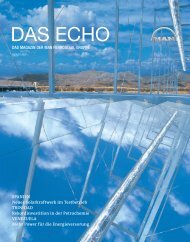

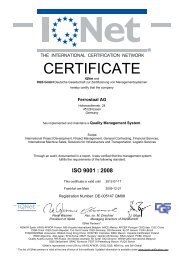
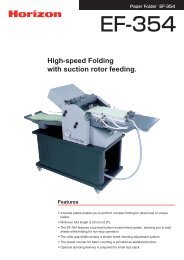
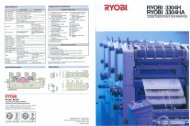
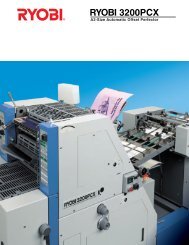
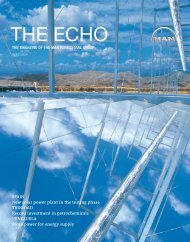
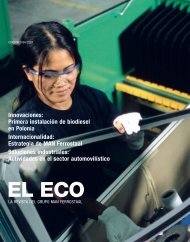
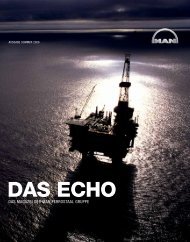
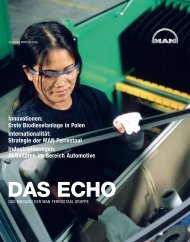
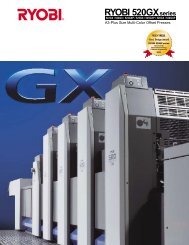
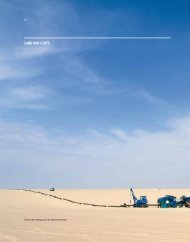

![Product information: Ryobi 3300CR [PDF, 3.1 mb] - Ferrostaal](https://img.yumpu.com/2745806/1/184x260/product-information-ryobi-3300cr-pdf-31-mb-ferrostaal.jpg?quality=85)